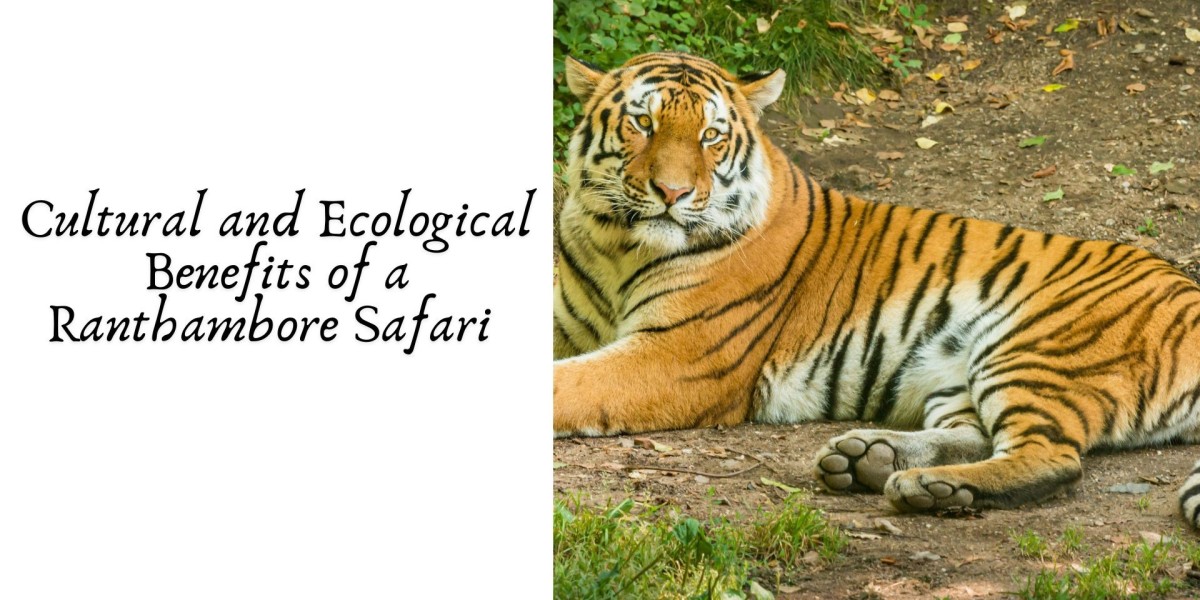Ranthambore Safari | Eye of The Tiger
A Ranthambore Safari offers a unique opportunity to explore the diverse wildlife of India while also connecting with the rich cultural and ecological heritage of the region. Located in the Sawai Madhopur district of Rajasthan, Ranthambore National Park is one of the country’s premier wildlife reserves, home to a thriving population of Bengal tigers, as well as a variety of other flora and fauna. However, the benefits of a Ranthambore Safari go beyond just wildlife sightings. The experience provides valuable insights into the region’s culture and plays a significant role in ecological conservation efforts.
Cultural Benefits of a Ranthambore Safari
Connecting with Rajasthan’s Heritage
Ranthambore is steeped in history and culture, and a safari through the park offers more than just a glimpse of its natural beauty. The park is home to the majestic Ranthambore Fort, a UNESCO World Heritage Site that dates back to the 10th century. Visitors to the park can explore this ancient fort, which offers panoramic views of the surrounding landscape and serves as a reminder of the region’s rich history. The fort is also a testament to the architectural brilliance of the Rajput kings who once ruled the area.
In addition to the fort, the nearby village communities offer a chance to engage with the local culture. Traditional Rajasthani music, dance, and handicrafts are integral to the lives of the people in this region. Visitors can interact with local artisans, watch them at work, and even purchase handcrafted items as souvenirs. This not only supports the local economy but also helps preserve traditional arts and crafts that have been passed down through generations.
Promoting Cultural Awareness
A Ranthambore Safari provides an opportunity for cultural exchange. Tourists from around the world visit the park, bringing with them diverse perspectives and experiences. This interaction fosters cultural understanding and appreciation, helping to break down barriers and build connections between people of different backgrounds. For local communities, this exposure to different cultures can be enriching, offering new ideas and perspectives.
The safari experience also promotes awareness of the importance of preserving cultural heritage. By witnessing the traditions and way of life in the villages surrounding Ranthambore, visitors gain a deeper understanding of the cultural significance of the region and the need to protect it.
Ecological Benefits of a Ranthambore Safari
Wildlife Conservation
The most obvious ecological benefit of a Ranthambore Safari is its contribution to wildlife conservation. The park is one of the few places in India where Bengal tigers can be seen in their natural habitat. These tigers are a symbol of India’s rich biodiversity, and their protection is crucial to maintaining the ecological balance of the region. Ranthambore National Park plays a vital role in the conservation of these magnificent animals, and the revenue generated from safaris is reinvested into conservation efforts.
In addition to tigers, Ranthambore is home to a wide variety of other species, including leopards, sloth bears, crocodiles, and over 300 species of birds. The park’s diverse ecosystems, ranging from dense forests to open grasslands, provide a sanctuary for these animals and contribute to the overall health of the environment.
Environmental Education
A Ranthambore Safari is not just a thrilling adventure; it is also an educational experience. Visitors learn about the importance of wildlife conservation and the role that protected areas like Ranthambore play in preserving biodiversity. Guides and naturalists provide valuable insights into the behavior and ecology of the animals, as well as the challenges they face due to habitat loss and poaching.
This education extends beyond the visitors themselves. By raising awareness about conservation issues, the safari experience encourages people to take action to protect the environment in their own communities. Whether through supporting conservation organizations, advocating for wildlife protection, or adopting sustainable practices, the impact of a Ranthambore Safari can be far-reaching.
Sustainable Tourism
The Ranthambore Safari experience is an example of sustainable tourism in action. The park’s management has implemented measures to minimize the environmental impact of tourism while maximizing its benefits. For example, the number of vehicles allowed into the park each day is limited to reduce disturbance to the wildlife. Additionally, local communities are involved in the tourism industry, providing jobs and economic opportunities that reduce the pressure on natural resources.
By promoting sustainable tourism practices, Ranthambore National Park sets an example for other protected areas in India and around the world. Visitors leave with a greater appreciation for the importance of responsible tourism and the need to protect the natural world for future generations.
Conclusion
A Ranthambore Safari offers a unique blend of cultural and ecological benefits, making it a must-visit destination for anyone interested in wildlife, history, and conservation. The experience provides a deeper understanding of the region’s rich cultural heritage while contributing to the protection of its diverse ecosystems. By choosing to embark on a Ranthambore Safari, visitors not only enjoy an unforgettable adventure but also play a part in preserving the natural and cultural treasures of this remarkable region.
The next time you plan a trip to Rajasthan, consider the broader impact of your visit. A Ranthambore Safari is more than just a chance to see tigers in the wild; it is an opportunity to connect with nature, support conservation efforts, and engage with the rich cultural traditions of the region. In doing so, you contribute to a sustainable future where both people and wildlife can thrive.









